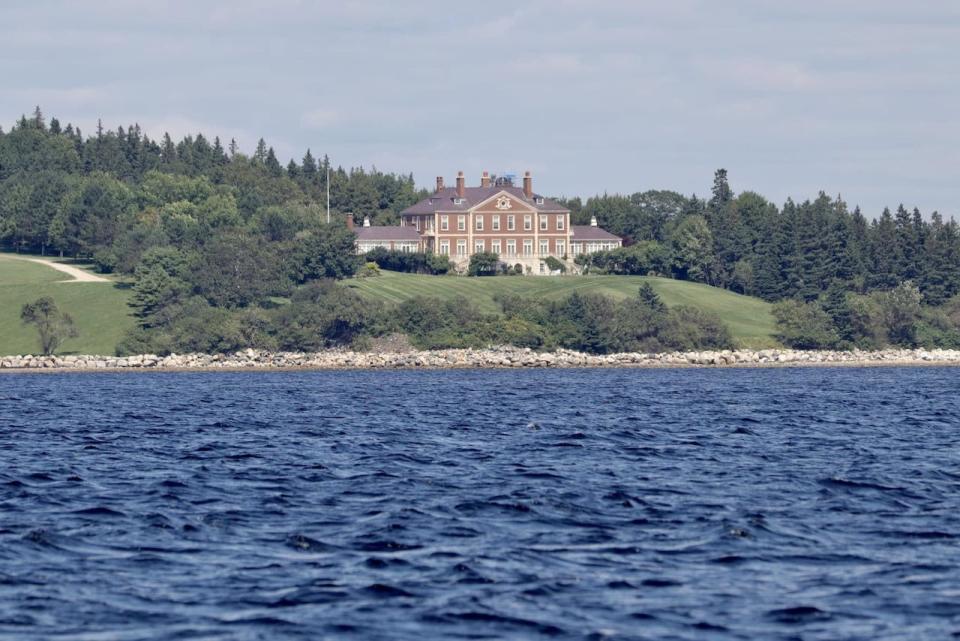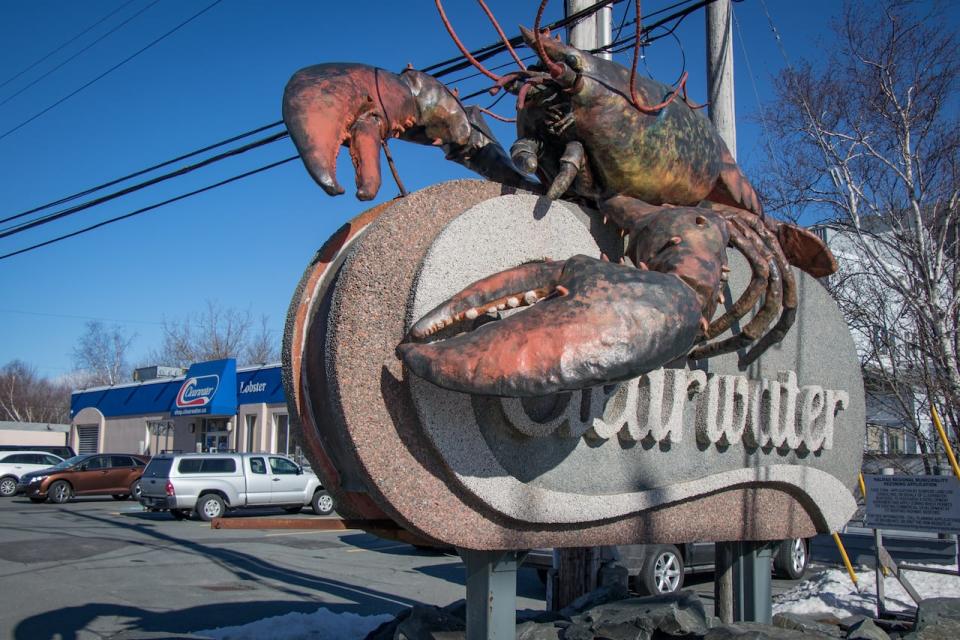One of Nova Scotia’s most prominent and wealthy businessmen is locked in a massive income tax battle with the Canada Revenue Agency, one that spans two decades and includes a sprawling seaside mansion, a high-performance dressage horse operation and three luxury yachts.
The federal government is claiming seafood baron John Risley didn’t report $89 million in income in the form of “benefits” he received from 2000-2019 through some of his companies, which the CRA says funded living expenses, hobbies and “personal endeavours.”
The 76-year-old Risley is best known as the co-founder of Clearwater Seafoods, but he also made a bundle in the nutrition and communications sectors.
He is appealing the CRA’s reassessments in the Tax Court of Canada and maintains he reported what he believed were the correct amounts on his taxes. He denies making misrepresentations or false statements.
Under the Income Tax Act, the value of “benefits” conferred by a corporation to a shareholder is considered part of their income and should be taxed. For instance, if a company pays for a vacation, the value of that trip is considered taxable income.
Part of the dispute, according to court records, involves a 121-hectare property near Chester, N.S., owned by a Risley company. In 1998, Risley and his former wife built a 16,693-square-foot house on the land using millions in interest-free loans from an investment and holding firm he headed.
In appeal documents, a lawyer for Risley claims he only “partly” used the house for personal purposes, and that from 2000-2011 the property hosted charity events, business development functions for his companies, and was used to “entertain” unnamed “Canadian and Nova Scotian government dignitaries.”

The Chester, N.S., home that Risley and his former wife built in 1998 is shown in 2023. (Paul Palmeter/CBC)
Risley did report or concede $33 million in taxable benefits related to the reassessments under appeal over the 20-year period. However, the heart of the conflict appears to be whether that amount is high enough, and how the CRA has parsed the personal from the business.
The agency has claimed, for instance, a Simmental cattle operation on the Chester property that included cows bred by the powerful U.S. Rockefeller family was simply a personal hobby funded through a Risley holding company that earned little or no revenue. Risley has argued the property, including the cattle farm, was only used for business purposes.
Risley has filed three separate appeals in the Tax Court, including two in 2018 and one this summer, which say he relied on a team of accountants and tax specialists to advise him and prepare his returns.
In a phone call with CBC, he initially agreed to an in-person interview. He said he doesn’t dispute that he should pay tax on shareholder benefits. Instead, the problem with the CRA surrounds the high value it has assessed those benefits and the agency’s methodology in calculating them.
But he later declined the interview, writing in an email that his lawyers had “found out” he intended to be interviewed, and had warned him it was “extremely unwise” as “the court will take a dim view of me arguing my case in a public forum.”
“I am often minded to ignore my lawyers and do what I think I should, but in this case you can imagine upsetting the court which will [be] the ultimate arbiter of what is fair is not in my best interest,” he wrote.
The CRA declined an interview request, as did Cecil Woon, the Department of Justice lawyer handling the appeal.


Risley is the co-founder of Clearwater Seafoods, which in 2021 was sold to Premium Brands Holdings and a consortium of Mi’kmaw First Nations. (Robert Short/CBC)
The amount of money at stake and the level of luxury may raise some eyebrows, but the type of case is fairly common, according to three tax experts who spoke with CBC but are not involved in litigation.
Often, such cases involve small business owners who use company-owned assets for their personal use but get in trouble with the CRA when they don’t report the benefits on their tax returns.
There are high-profile cases, too, such as Cirque du Soleil co-founder and Quebec businessman Guy Laliberté, who unsuccessfully challenged a CRA reassessment that found a $42-million trip he took to space was a taxable benefit.
In Nova Scotia, road-building mogul Carl Potter earlier this year abandoned his tax fight over an 18-hole golf course he claimed was used for business purposes, but which the CRA maintained was built for his “exclusive personal enjoyment.”
‘It can be really tough for taxpayers’
The CRA has a lot of power, according to Toronto lawyer Natalie Worsfold. It can assume certain facts, and the initial onus is on the taxpayer who wants to fight back to show those assumptions are wrong.
In the case of how often a yacht was used for personal reasons, for instance, that could mean gathering trip logs and witness statements from the captain, and the awkward prospect of asking business clients who were on board to swear affidavits.
“It can be really tough for taxpayers,” Worsfold said. “Because the CRA, once they’re assessing penalties, there’s no restriction on time. So you’re looking at a really difficult threshold to meet in terms of evidentiary proof. How do I prove what was happening 20 years ago?”
The section of the Income Tax Act related to shareholder benefits is “quite general,” according to Geoff Loomer, a former tax lawyer and an associate professor at the University of Victoria. It leaves much of the discretion in the hands of the CRA and, ultimately, the courts to decide what is a benefit.
That’s “more art than science,” according to Loomer, although he said it is a worthy goal for a progressive tax system because it means people can’t find tricky ways to avoid paying tax by, for instance, taking a vacation on the company dime.
“It would be inequitable if very wealthy people could get all these untaxed benefits,” he said. “OK, they get these things that most people don’t get to enjoy. Fine. I’m OK with that, as long as it’s being included in their income for tax purposes.”


Canadian billionaire Guy Laliberte, shown in 2009 while sitting inside the Soyuz TMA-14 spacecraft shortly after landing on the International Space Station, lost a Tax Court case related to the trip. (The Canadian Press)
Risley’s three appeal cases offer insight into items of luxury and expense that surround one of Nova Scotia’s best-known businessmen, and how they’ve been financed.
The CRA alleges that the Chester home, which is currently owned by a Risley company named Lobster Point Holdings Ltd., was built using $28 million in interest-free loans from Clearwater Fine Foods Inc., a holding and investment firm that Risley chaired.
That amount continued to rise as money from the larger company was used to pay the operating expenses of the properties, and the loan reached $67 million by 2010, according to the CRA.
Over the years, Risley has indicated shareholder benefits on his taxes. However, the CRA has claimed they’ve been underreported, sometimes by several million dollars a year.
“The appellant’s style of living was not compatible with his reported income,” the federal government said in a reply filed in court, also noting Risley had a “history of underreporting benefits.”
In a statement, the CRA said determining the difference between business and personal use is done on a “case-by-case basis.” A spokesperson said that when assets are used for both, the taxpayer is required to keep reliable records that justify the use.
Ski lodge and yachts
The Chester home is not the only difficulty. Mentioned in the appeals are a Montana ski lodge and a Labrador sport fishing lodge, a Halifax mansion built in 2017, three yachts, flights on company aircraft, an equestrian stable with “high-performance” dressage horses that were later sold at a loss, and a condominium in Victoria.
The yachts, in particular, appear to have caught the attention of tax authorities, with the CRA issuing nearly $4 million in gross negligence penalties under a section of the Income Tax Act related to making false statements or omissions, according to court records.
The vessels included the 75-metre Northern Star, which was owned by a Cayman Islands-registered subsidiary of Risley’s holding company. When it was sold by the company in 2017, the broker described it as “one of the finest yachts ever built.”
In his appeal, a lawyer for Risley said the yachts were used for business purposes, chartered out to third parties or used by his companies to “advance their business goals.”
Risley only used them outside the peak charter season, the appeal said. In two cases his use was “incidental” to business, and he reported some taxable benefits related to yachts, and believes he did so accurately.
Risley’s appeals also claim the CRA took too long to issue reassessments for a number of tax years. The tax agency can take longer than the typical three-year period, but it must show there was misrepresentation due to “neglect, carelessness or wilful default,” which Risley denies.
The CRA also wants Risley to pay $8.6 million in interest on arrears from the 2012-2019 tax years.
No dates have been set for the appeals.
MORE TOP STORIES

